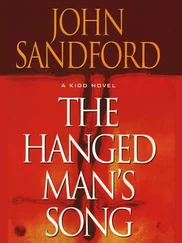Before too long, the interview in the closet was over. Berryman, the reporter, was leaning against the glass window of the announcer’s studio looking drained of blood. English motioned to him to come on into the studio, though there was hardly any room, if only to stop him breathing on the glass like a kid who needed a nickel. Berryman was tall and pale, with the look, to English’s eye, of a real juicer, just the kind of washout you’d expect to locate in one of the closets around here. Everyone at WPRD was either just starting out in the radio business or completely finished. There was nobody in between. “I just got fired,” Berryman said.
“Bullshit.”
“No. No. Ray Sands was just in here, and he fired me.”
“You must’ve misheard him. He must’ve not recognized you and he must’ve said, ‘You’re hired.’”
Smith turned and asked a question, but now he couldn’t say anything intelligible because his bald head was tuned to Portuguese. He might have been requesting permission to explode the station. English nodded and smiled, rather than make him feel misunderstood.
“What’d he fire you for?” English asked Berryman.
“He was standing in the fucking hallway,” the reporter said. “He was waiting for me when I came out of the fucking closet. He said the fucking interview was hogwash. He pronounced my fucking fate.”
“Hogwash? What has he got against hogwash? I mean, hey”—English pointed at the day’s small stack of Special Programs tapes—“Baba Ram Dass. Check this out, Berryman—‘The Nicest People on Cape Cod.’ And anyway, when did Sands even get a chance to hear the tape?”
“He didn’t hear this tape,” Berryman said. “This is part two. He heard part one. He heard it last week, on the air.” Berryman held out the tape, a cassette. “This is part two. He doesn’t want to hear part two.”
Smith, trying to get one record stopped and another started, now developed the notion that he was being asked to play this tape. “No, no, no. I’m play music en rahdio — very”—he went through a bunch of gestures that got nothing across, picked up his play list, and ran his finger down along the titles—“I’m make diss, to will be — very nice .”
“I don’t believe anybody ever got fired before at WPRD,” English told Berryman.
“He said the whole report was hogwash. I mean, as if he actually gives two shits.”
English was hardly paying this chat any mind — mainly he kept his eye on Smith, communicating wordlessly with the new arrival through nods of the head and the way he held his body, letting Smith know he was still there, still helping. And yet what passed between him and Berryman turned out to be important. Things were coming swiftly into his mind along various paths, like spears. But — Fired, tough luck for the unlucky, was all he thought at the time. “Well, Berryman, I’ll buy you a drink,” he told the ex-reporter.
“I happen to be drunk already,” Berryman said, “but something like that might be arranged.”
“Right when this shift is over. How about a cup of coffee?”
“Fuck you,” Berryman said. “Hogwash.”
They were sitting in a basement place on the East End, Berryman’s idea of a bar. English preferred a spot about a half block away that had brighter lights and a little chromium. But tonight it was Berryman’s party.
Smith was with them and seemed to grasp that he and English were consoling Berryman for the negligible loss of his job. Smith’s face was expressive. English had never seen anybody before who actually “furrowed” his brow. Smith pushed his lips toward the rim of his glass like the bell of a honeysuckle, and what he did was, he quaffed.
“So tell me about this tape,” English said, he hoped sympathetically, to Berryman.
“But the point of it is that there’s nothing to tell, English. ’Nam vets, Agent Orange, it’s last year’s stuff. But a phone interview has a certain immediacy, so you do a phone interview. What does Sands want, a big scoop? We can’t even make a long-distance call, man, because his credit’s trashed.”
English was ready to get going. It was a bar with dim lights and a faint stink, where the big mistake was a rug that harbored the damp. The customers drank resolutely. It wasn’t eleven yet, but he saw men and women already forming tender alliances of the kind that had to be hurried through before they rotted — his kind, as a matter of fact. After a while he couldn’t stop himself. “Let me tell you about this woman I got the hots for.” “Are you buying?” Berryman said.
“Who’s been buying so far?”
“Mr. English. One of the gainfully employed.”
“Smith.” English waggled his empty glass.
Smith caught the bartender’s eye with a raised finger, then stirred the finger around among the three of them.
“Her name is Leanna Sousa,” English said. “Leanna Sousa, Leanna Sousa, Leanna Sousa.” He’d never been able to drink — two was his limit, maybe one.
“I didn’t get the young lady’s name,” Berryman said.
“Leanna Sousa?” Smith said. “Sousa?”
“Right. Yeah. Sousa — Portuguese.”
“Diss a lady that she have one hotel? Sousa Hotel?”
“We didn’t get around to what she owns.”
“You guys are so close. You go so deep,” Berryman said.
“It wasn’t that kind of conversation.”
“‘It?’ Are we talking about one fucking conversation with the dyke owner of a dykes-only hotel in one of the homosexual capitals of the world? What religion are you?”
“Catholic.”
“You’re about to suffer worse than a Jew.”
“I’m crazy about her. Her hair is pure black.”
“Oh,” Berryman said, “oh. Why didn’t you say so in the first place?”
“If I could get you to see what I see in her, then I wouldn’t feel so alone.”
“You’re not alone, English. I’m right here. Buy me a drink.”
“You’re right there with the snotty remarks. You’re above it all. But you know what they say? Empty people float upward.”
“My glass is almost empty,” Berryman pointed out.
“Diss woman,” Smith said. “Because she — the family feel terrible.”
“Yeah, I can dig it,” English said. “She’s non-traditional.”
“She’s a dyke,” Berryman said. “That’s okay for her, that’s okay for me, but it’s not okay for you. I’ve seen these reclamation projects. I’ve seen them fail.” He crossed his eyes, trying to look at an ice cube while he drained his glass of bourbon. “Big deal.”
“Reclamation? I wasn’t talking about reclamation. Hey, I would never ask a woman to change herself for me.”
“For Christ’s sake, English. You don’t have to snow me. We’re none of us gentlemen here.”
“I wasn’t snowing you.” But he was. This fact soured his view of those around him.
Smith put his hand on English’s arm as English got up to leave.
“You’re not taking off?” Berryman said.
“I am. I think I’ll go listen to your farewell tape. Part one.”
“It turns my stomach to see people have two drinks and then just … leave,” Berryman said.
Smith made a point of shaking English’s hand, taking it in both of his, European-style.
It was only that English was curious about Ray Sands. Because English worked two jobs for him, to English he was actually two bosses. English would have admitted that, around WPRD, he himself had a voice in the universal shock and disgust at the avarice, cowardice, and stupidity of the boss. But as Sands’s only assistant in the detective trade, English had seen his house, eaten his roast beef, talked with his prematurely senile old wife, and played with his toy electric train; and the underground of Ray Sands, the lightless shafts — how deep did they go? Even on a sunny afternoon, standing outside his home in a blue parka and one of those hats that dads wear fishing, trimming his hedges with electric clippers, as English had found him doing one day, Sands seemed very mysterious and almost invisible. Maybe it was just that he was one of those people who’d been grownups when English was a child — shrouded, and heavy-laden with matters English hoped would go away before he had to learn about them. Anyway, why shouldn’t he be interested? — as when once he’d looked through his father’s bureau drawer and found more silver change there than a child knew existed. Looking at it he’d wondered so hard what it must be like to own so much shiny money that he’d stolen it all. Not that he meant to steal anything from Ray Sands. But he wanted to spy on the person he was spying for.
Читать дальше












